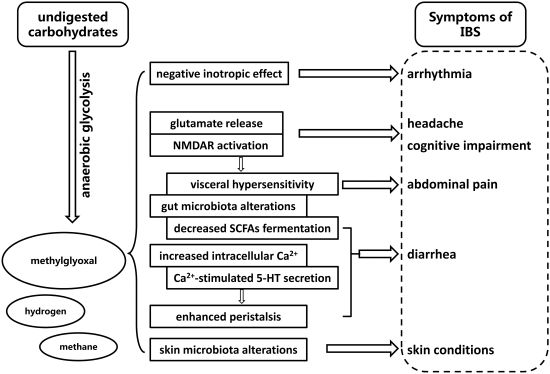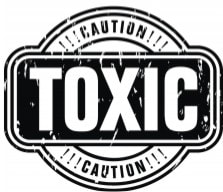Do not eat manuka honey if you have irritable bowel syndrome. Or the disease.
The question whether a person with irritable bowel syndrome can eat honey or not has already been discussed in the article Can I have honey in IBS? The answer is a definite NO when the person is in the acute phases of the disease and yes, under certain conditions. These imply the type of honey, which should contain an equal amount of fructose and glucose, or honey with a higher glucose content. To see which are them see Sugars in honey and why honey is so sweet.
But when it comes to manuka honey, people expect it to do miracles. And that’s because the marketing behind it really did miracles in people’s subconscious. It was and still is considered to be a panacea, a miracle drug that can heal everything. And this happened because manuka honey was able to kill Staphylococcus Aureus, where conventional antibiotics failed.
It is however important to know that this happened on skin wound and not inside our body. We can extent it, of course, and think that if it was able to kill it on our skin it can kill it everywhere. Only that the inside of our body is so complex that things can take a different turn.
Manuka honey it a powerful antimicrobial.
Which sometimes is advertised as antibacterial or as natural antibiotic. All of them are true. Microbes include bacteria among other microorganisms. And antimicrobial products include antibiotics and other 2 main classes: disinfectants and antiseptics.
It is more correct to say that manuka honey is antimicrobial, as besides its antibiotic factors, the antiviral factors are also included.
But the fact that manuka honey is antimicrobial doesn’t mean it is our best friend. The word antibiotic comes from the word “anti” meaning “against” and the ancient Greek “bios” meaning “life” or “alive”.
An antimicrobial kills or inhibits the growth of microorganisms.
And the truth is, a human is made of more bacteria than cells! We are the host of good and bad bacteria alike. We cannot possibly live without any of them. All these bacteria are part of our body, of ourselves. Do we want to kill parts of us?

Methylglyoxal – the substance in manuka honey with antimicrobial properties!
Manuka honey is an effective antimicrobial product due to its high content of methylglyoxal (MGO or MG).
MGO is a toxic substance that kills and inhibits the growth of microorganisms.
A toxic substance that is produced in our body and that we also ingest from different food such as coffee or soy sauce, or inhale it as tobacco smoke.
A toxic substance that leads to AGEs – harmful compounds that can affect nearly every type of cell and molecule in the body and represent one factor in aging and in some age-related chronic diseases. These substances can lead to the development or worsening of many degenerative diseases, including Alzheimer’s disease, cardiovascular disease, stroke, eye cataracts and cancer. They are also believed to play a causative role in the blood-vessel complications of diabetes mellitus. AGEs speed up oxidative damage to cells and alters their normal behavior.
A toxic substance that is eliminated by our body – when it is found in normal quantities.
Due to this toxicity, MGO is the main factor that gives manuka honey its antimicrobial properties.
further reading: Is Manuka Honey safe to eat?
How do I know if I have IBS?
Symptoms:
Abdominal pain and spasms, diarrhea, flatulence, altered bowel habits, headache, fatigue, loss of concentration, depression and heart palpitations.
If after the tests, all the other organic diseases (including lactose and food intolerance) have been excluded, then you’ll probably have IBS – irritable bowel syndrome.
How does this IBS happen?
There are some theories, a final conclusion has not yet been reached.
· Elie Metchnikoff, (Nobel Prize in Physiology or Medicine in 1908) said that bacteria in the colon could be the source of “toxicants” and toxic substances would lead to illness and aging.
· A.K. Campbell et al. continued this theory and said that carbohydrates and other foods that were not completely digested or absorbed in the small intestine, reached the colon and were anaerobically digested by gut bacteria and decomposed into hydrogen gas and other metabolites such as methylglyoxal, methane, diacetyl, aldehydes and ketones. Methylglyoxal is mainly derived from glucose and fructose metabolism.
Here is what these toxins do in our body:
1. Kill bacteria. These toxins induce calcium signals in bacteria and affect their growth, thereby acting to modify the balance of microflora in the gut. Previous studies have shown that “methylglyoxal (0.1–10 mM) inhibits the growth of wild type E. coli cells via inducing rapid increase of cytosolic free Ca2+, followed by altered expression of at least 90 genes”.
It was reported that Methylglyoxal has pharmacological potential of antiviral, antimalarial and antibacterial activities (D. Talukdar et al. in 2009).
So yes, too much carbohydrates and other food in the gut, are digested by bacteria and turned into toxins which will subsequently destroy gut bacteria. MGO is therefore good to kill bad bacteria but we should not forget it also kills good bacteria. If you need to take MGO large quantities, via manuka honey or other products, always supplement with probiotics.
2. Affect the entire body. These bacterial ‘toxins’ also affect signalling mechanisms in cells around the body, thereby explaining the wide range of symptoms in people with food intolerance. In addition to these, cytotoxicity of methylglyoxal was investigated in some researches indicating severe inhibition of DNA, RNA and protein syntheses.
Recent investigations (Lee BH et al. in 2013, Antognelli C et al. in 2013, Matafome P et al. in 2013) have suggested that methylglyoxal is involved in many diseases such as diabetes, cancer, and obesity, and can also disrupt barrier function of brain microvascular endothelial cells.
 picture source journals.plos.org
picture source journals.plos.org
Why is manuka honey not recommended in IBS?
Because of its high content of MGO.
On one hand it has a higher fructose content which will ferment in your large intestine, meaning that your gut bacteria will turn it into MGO and other toxins (as explained before), but on the other hand because it contains a high MGO content – which alone can induce IBS symptoms even in healthy persons.
Nevertheless not all manuka honey contains MGO. A regular consumption of manuka honey with no or very low MGO content is safe for a healthy person, even for an IBS person in non-flare periods.
The study Methylglyoxal Induces Systemic Symptoms of Irritable Bowel Syndrome, by Shuang Zhang et al. from China, published in 2014, analyzed the correlation of methylglyoxal (MGO) and the symptoms of irritable bowel syndrome (IBS), the diarrheal form. The study was done on rats.
Symptoms of IBS include:
diarrhea, abdominal pain, changes in bowel habits, nausea, vomiting, headache, anxiety, depression and cognitive impairment.
How was the study done?
The researchers gave 5 groups of rats an enema infusion of saline and 30 mM, 60 mM, 90 mM, 120 mM and 150 mM methylglyoxal and a control group only saline. Then they analyzed the following IBS representative factors: fecal water content, visceral sensitivity, behavioral tests and serotonin – serum 5-hydroxytryptamine (5-HT).

The results:
– The fecal water contents of rats exposed to 60 mM, 90 mM, 120 mM and 150 mM methylglyoxal were significantly increased compared with controls.
– All rats performed more frequent head scratching and grooming activities than controls.
– The sucrose preference of the rats treated with 150 mM methylglyoxal (45%) decreased compared with controls
– Serotonin [serum 5-hydroxytryptamine (5-HT)], an essential monoamine neurotransmitter mainly located in the enterochromaffin (EC) cells lining the intestinal mucosa, is also known as a key agent that accelerates intestinal peristalsis in IBS. Rats exposed to 30 mM, 60 mM, 90 mM MGO presented significantly higher serum 5-HT levels than controls (p<0.01) with a dose-dependent decline. Abnormal regulation of 5-HT results in unusual motility and secretory activities of alimentary tract, diarrhea, visceral hypersensitivity, chronic constipation, and other gastrointestinal disorders.
Studies said that methylglyoxal may stimulate serotonin release by induction of Ca2+ influx in EC cells.
The researchers’ conclusion:
“Methylglyoxal could induce diarrhea, visceral hypersensitivity (pain), headache as well as depression-like behaviors in rats, and might be the key role in triggering systemic symptoms of IBS.”
Where else can we find methylglyoxal?
Among the healthy natural food, manuka honey is the most abundant. It is surpassed only by berringa honey – from Australia (which is not so popular). Other types of honey may also contain it but even 1,000 times less.
The MGO content from honey raises in time in any honey. It also raises a lot during heating – a reason for which many naturists consider it to be toxic (if heated to be filtered or pasteurized). Also read Heating honey kills enzymes. But is boiled honey toxic?
With the exception of honey, MGO is present in many regular food, beverages and tobacco smoke.
Berringa honey: up to 1750 mg/kg
Manuka honey: 38 – 829+ mg/kg
Other honeys: 0 – 135 mg/kg
Soft drinks containing high
fructose corn syrup:23.5 – 267 mg/L
Sweetened tea beverages: 32.1 – 98.1 mg/L
Diet tea beverages: 26.2 – 42.5 mg/L
Cheddar cheese: 10.89 mg/kg
Soya sauce: 8.7 mg/L
Brewed coffee: 7 mg/L
Mozzarella: 4.06 mg/kg
Rice, millet, mustard: 2.2 – 5.4 mg/kg
Swiss cheese: 1.98 mg/kg
Bread: 0.79 mg/kg
Wine: 0.65 – 2.88 mg/L
Beer: 0.072 mg/L [let’s drink for this number! :)]
Please remember that not all manuka honey contain MGO and that this toxic substance is not the only antimicrobial factor of manuka honey (though it is the main one). You can still have manuka honey if it doesn’t have a high MGO content, or has a low one. (like a UMF5+)
If you decided to still ingest a manuka honey with a higher UMF, do it for a short period of time and always take probiotic supplements.
Do not eat manuka honey with a high number of UMF or MGO if you have IBS! if you do, your well-known IBS symptoms will return for sure.
If you need something to work against your internal bad bacteria, manuka honey with a high UMF grade, or MGO, is not the only one that can help you. Please read this article: What bacteria can honey kill? and What gives honey its antimicrobial power?
For external use, especially for the treatment on any type of skin wound Manuka honey is THE BEST to treat wounds, burns, skin infections. And is completely safe.
Featured picture pixabay.com



